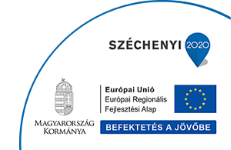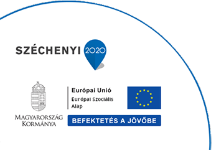Current domestic events / XXXIII. International Biblical Conference
More information: http://sznbk1988.hu/

Hermeneutics or Versions of Biblical Text Interpretation
Szeged International Biblical Conference No. 33, 23rd – 25th August, 2022
Szeged, Dóm tér, Visitors’ Centre
Patrons: Szeged-Csanád Diocesan Dr. László Kiss-Rigó, Prof. Dr. Szabolcs Szuromi rector emeritus (PPKE), Prof. Dr. Oda Wiscmeyer, University of Erlangen-Nuremberg, Prof. Dr Martin Meiser, University of Saarland, Prof. Dr. Levente Balázs Martos, member of the Pontifical Biblical Institute, Prof. Dr. Imre Kocsis, Pázmány Péter Catholic University, Prof. Dr. Ottó Pecsuk, President of the Ecumenical Bible Society, Dr. Zoltán Kustár, Debrecen Reformed Theological University, Prof. Dr. Tibor Fabiny, Director of the Hermeneutics Centre.
Hungary is a multi-confessional country, and although it uses virtually the same Bible, many Christian denominations interpret it differently. The same is true for the Hungarian Christian communities beyond the border, in the Historical Hungarian Highlands (part of Slovakia), Transylvania (Part of Romania), Southern Hungary (Part of Serbian), Sub-Carpathia (part of Ukraine) and Burgenland (Part of Austria), in other words, all the areas where Hungarians live beyond the border. Because of their different historical and biblical interpretations of the text, the relationship between these Christian confessions is very variable, but in general their relationship is characterised by little knowledge of the basic doctrines of the other ones and even less of the theoretical basis of their biblical interpretation, i.e., their biblical hermeneutics.
A pioneer in this field is a volume edited by Oda Wischmeyer entitled “Biblical Hermeneutics from Ancient Genesis to the Present” (de Gruyter 2016), which presents these most important biblical hermeneutics across historical and denominational boundaries, and has therefore been translated into Hungarian. It is clear from this volume that Biblical Hermeneutics is not an invention of the Reformation, but that there were many later studies of the subject in Christian antiquity as well as in the Middle Ages. All of these can help us to understand the development of hermeneutics after 1950, in which philosophical, literary and legal-hermeneutical trends are presented, as appropriate. In Hungary it was perhaps the recently deceased professor of philosophy István M. Fehér who has been the most profound in this field. He discovered that today’s hermeneutics research is a further development of the earlier biblical hermeneutics research.
In Hungary, there has never been a conference organized that would present biblical hermeneutics and the literary, philosophical, and legal hermeneutical trends simultaneously. In fact, the history of church history and the history of philosophy only deal with hermeneutics quite superficially. Many believe that presenting the history of institutions or events reveals the history of thinking within the Church. The histories of theology often focus merely on the presentation of systematic theology (dogmatics), or perhaps on debates about the tendencies called heretical, and these descriptions at most enter in a more intensive contact with the history of philosophy.
The changes in the interpretation of the Bible, the various biblical hermeneutical concepts and their various literary-theoretical, philosophical and other connections shed new light on this almost two-thousand-year-old process, the full exploration of which is seriously lacking not only in Hungarian, but also in international literature. It is hoped that our hermeneutical conference will inspire not only biblical scholars but also theologians, literary scholars, historians, philosophers, linguists, cultural anthropologists, aestheticians, classicist philologists, and even political scientists and legal scholars to reflect on the relationship between text and reader.
To register for the conference, academics working on the topic can send an e-mail with the title of their presentation in Hungarian and in German/English (benyik.gyorgy@gmail.com) or subscribe to the Google spreadsheet on the conference website – http://www.sznbk1988.hu/hu – between 10th January and 1st June 2022.
All presenters, especially Hungarian ones, are kindly requested to send a summary of their presentation (German or English) by email to benyik.gyorgy@gmail.com by 1 June 2022 at the latest. Please make sure not to extend 1500 characters. up to a maximum of 1500 characters, by 15th June 2022 at the latest. The abstract should contain the title of the lecture and the source texts as well as the most important theses of the given lecture.
At the conference, lectures should not exceed 20 minutes which is followed by a brief and mainly professional debate (a maximum of 10 minutes). On each day of the conference, if there is time, everyone can take part in a workshop session, in small groups, presided by the lecturers. One can give their lecture at the conference in Hungarian. However, in this case the speaker must provide for a comprehensive summary in German or in English or should make a Power Point presentation or hand out the whole text without footnotes in one of the above languages. The lecturer should provide these on their own.
We plan to publish the presentations in English/German about a year after the conference (2023) and distribute the book to about 70 universities. The extension of the written study should be between 25.000 and 30.000 characters with spaces included. The voice material of the lectures and the summaries will be uploaded to the homepage of the Conference. The deadline for sending us the final version of the lecture is 19th November 2022.
Please, make sure that the Hebrew, Greek, Syrian etc. words are transcribed in Latin according to scholarly transcription. The publication of texts arriving after the 26th of November 2022 may be doubtful. In case your text extends the above-mentioned length, it should be negotiated and permitted by the editor.
First-time lecturers should also send a short scientific biography – it should not exceed 5.000 characters with spaces – mentioning their three most important publications (books) along. We would kindly ask you all to provide us with your scholarly title and your current workplace.
We offer free board and lodging lecturers for the time of the conference as well as participation in the cultural programmes free of charge. Persons accompanying our lecturers are not automatically catered for free of charge. Please, inform us as soon as possible and before 1st June 2022 if you have any special requirement concerning meals.
The Conference is open to all; university students/ students of theology may register with a discount.
Please help the organizers by making sure that you inform us about the exact date of your arrival and departure by 1st June 2022 at the latest.
After the application, we will send you a registration form to be filled in by 1st June 2022. The registration will be complete upon return of the completed form, of which the conference organiser will send a confirmation.
Szeged, 4th January 2022
Dr. György Benyik PhD
director
Szeged International Biblical Conference


